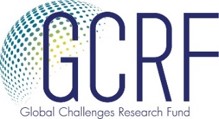Annabelle’s story A day in the life of a waste picker in Vijayawada, India
Located on the banks of the Krishna river in the Indian state of Andhra Pradesh, Vijayawada is home to 10.3 lakh people.
The city is the second largest city in the state by population and the third most densely populated urban built-up area in the world, with around 31,200 people per square km.
The name Vijayawada translates to the “Land of Victory” – a Hindu mythological reference to good triumphing over evil.
Early to rise
Anitha is a waste picker and her day starts early – around 4:00 in the morning.
She works to support her family by collecting domestic and commercial rubbish.
She is part of an ‘invisible’ workforce that labour to keep Indian cities safe and clean.
Walking the road together
While Anitha’s work can be difficult it is also an opportunity to catch up with friends.
There are moments of camaraderie and chat woven throughout her work.

A heavy load
The work is arduous.
Despite being a very small woman Anitha carries large weights of refuse which she collects from the bins and dumps of the cities’ houses and businesses.
While she occupies the same city as the middle classes and elites, Anitha’s experience of urban spaces is quite different and distinct.
Weighing it all up
At the end of a long working day Anitha takes the waste that she has collected to a scrap dealer who pays her by weight for the mixed rubbish that she has collected.
The scrap dealer separates the different types of rubbish and sells it to the dump according to the different types of waste collected – plastic, glass, paper etc.
Often scrap dealers started their working lives as waste pickers like Anitha.
A vision of the future
Anitha dreams of a new rickshaw.
Although it is expensive, and finding the money will be difficult, it would make her work simpler and easier.
Acknowledgements
The UKRI GCRF Accountability for Informal Urban Equity Hub is a multi-country Hub with partners in the UK, Sierra Leone, India, Bangladesh and Kenya which we call ARISE. The Hub works with communities in slums and informal settlements to support processes of accountability related to health. It is funded through the UKRI Collective Fund.

